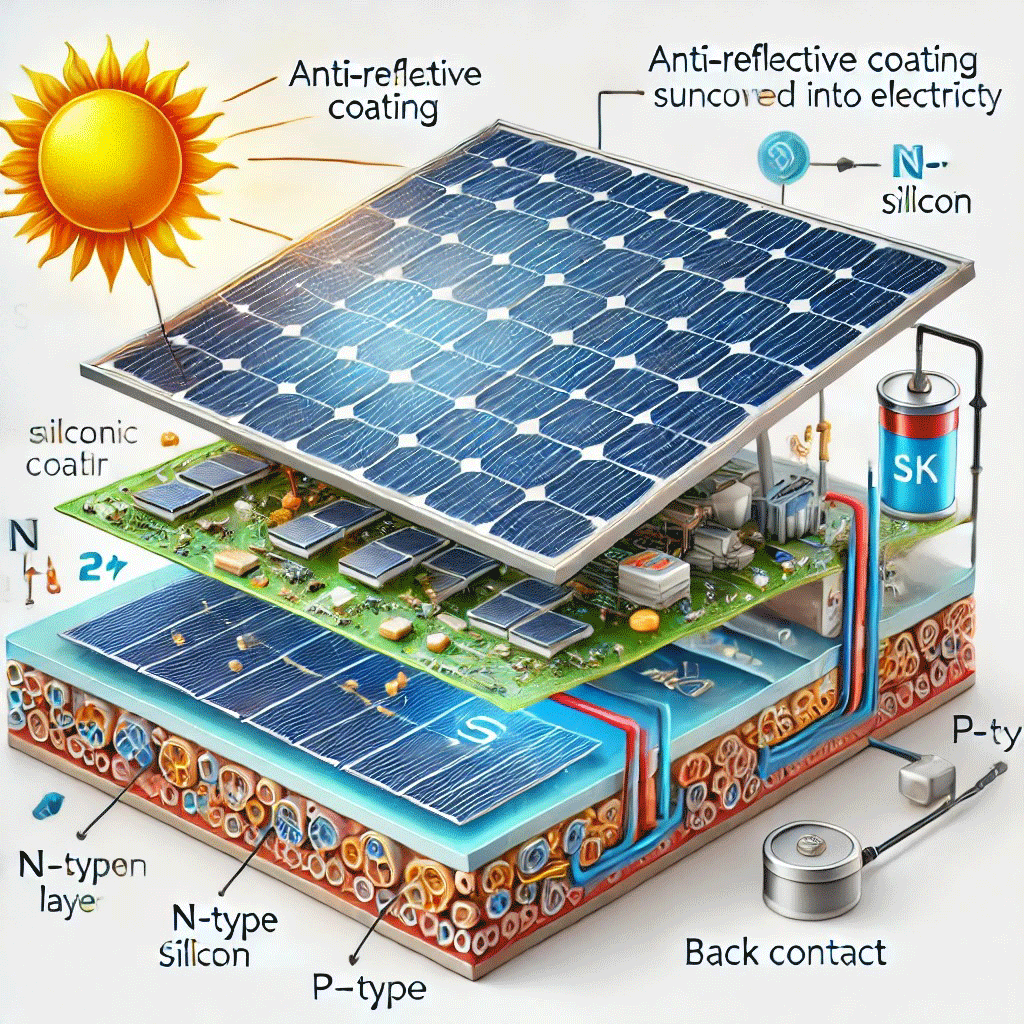Simply Solar Illinois – Personalized Solar Solutions for All Budgets
Simply Solar Illinois – Personalized Solar Solutions for All Budgets
Blog Article
Exactly How Solar Energy Can Aid You Save Money and Minimize Your Carbon Impact
The integration of solar power into your energy portfolio provides a compelling possibility for both economic savings and environmental stewardship. As various federal government incentives become readily available, the inquiry emerges: exactly how can one efficiently browse the first investments and recurring benefits of solar modern technology to maximize both financial and ecological gains?
Comprehending Solar Power Savings
While the transition to solar power frequently entails a first investment, comprehending solar energy savings is vital for property owners and organizations alike. Solar energy systems can dramatically minimize power expenses by utilizing the sunlight's power, translating into substantial lasting economic benefits. By generating their own electrical power, customers decrease reliance on grid power, which undergoes varying costs. These financial savings can build up gradually, often causing a fast return on financial investment.
Furthermore, solar power systems may get various monetary rewards, including tax debts and rebates, even more enhancing their cost-effectiveness. The availability of net metering permits users to market excess power back to the grid, developing an additional earnings stream. These variables contribute to the general savings connected with solar energy.

In enhancement to route financial savings, solar power uses the added benefit of boosting home worth. Homes equipped with solar panels are usually much more attractive to buyers, as they guarantee reduced power expenses - Simply Solar Illinois. Recognizing these components is vital for anyone thinking about solar energy, as it highlights not simply the prospective economic gains, yet additionally the broader ecological and financial advantages of taking on renewable energy options
Preliminary Expenses vs. Long-Term Benefits
When assessing solar energy, it is essential to weigh the initial prices against the long-term benefits. The upfront financial investment for photovoltaic panels, installment, and associated devices can be substantial, often ranging from $15,000 to $30,000, depending upon the system dimension and home energy demands. This first expenditure may hinder some homeowners; nonetheless, it is important to think about the possible financial savings with time.
As soon as mounted, solar energy systems can substantially decrease or even eliminate monthly electricity expenses, leading to substantial lasting financial benefits. Research studies indicate that property owners can save anywhere from $10,000 to $30,000 over the life expectancy of their planetary system, commonly 25 years. Additionally, several states use incentives, tax obligation credit ratings, and discounts that can balance out preliminary expenses, making solar more obtainable.

Decreasing Your Carbon Footprint
Lowering your carbon impact is a critical factor to consider in today's environmentally mindful society, and adopting solar energy is among the most reliable approaches to achieve this goal. Solar power is a clean, sustainable source that considerably reduces reliance on fossil fuels, which are major factors to greenhouse gas exhausts.

Furthermore, the extensive adoption of solar innovation encourages the development of green work and supports advancements in energy storage space and effectiveness. The more individuals and organizations purchase solar power, the greater the collective decrease in carbon exhausts, fostering a cleaner environment for future generations.
Government Incentives and Discounts
Embracing solar power not only benefits the setting however can additionally cause considerable financial cost savings, specifically with the accessibility of government incentives and discounts. Different federal, state, and neighborhood programs are made you can try this out to motivate property owners and businesses to invest in solar power systems, making the shift extra budget-friendly.
Among one of the most noticeable rewards is the Federal Investment Tax Obligation Credit Rating (ITC), which allows solar system owners to deduct a substantial portion of the setup costs from their government taxes. This incentive has been pivotal in minimizing the upfront costs related to solar power systems. Additionally, several states use their own tax obligation debts, grants, and rebates that can even more enhance cost savings.
Additionally, some regional governments supply property tax exemptions for solar setups, guaranteeing that property owners do not encounter boosted real estate tax as a result of their sustainable power investments. Utility firms might additionally supply incentives, consisting of internet metering and feed-in tolls, which allow solar power customers to market excess power back to the grid.
Picking the Right Solar System
Picking the appropriate solar system is essential for taking full advantage of power effectiveness and economic benefits. The choice hinges on a number of variables, Going Here consisting of power demands, budget plan, and available area. Homeowners should begin by evaluating their power consumption to determine the system size needed for ideal efficiency.
Next, take into consideration the various kinds of solar modern technologies readily available. Simply Solar Illinois. Photovoltaic Or Pv (PV) panels are one of the most common, transforming sunshine directly into power, while solar thermal systems concentrate on home heating water. Each type has distinct advantages depending on private needs
Budget considerations are additionally paramount. Preliminary installment costs can differ dramatically, so it is very important to compare quotes from several suppliers and check out funding choices. Federal government incentives and rebates can further decrease the financial problem, making solar systems Check This Out more obtainable.
Final Thought
In summary, solar power provides a viable option for attaining substantial price financial savings while at the same time reducing carbon exhausts. The initial financial investment, though considerable, yields substantial long-lasting economic benefits, with possible cost savings varying from $10,000 to $30,000 over 25 years. Moreover, the ecological benefits of solar power contribute to sustainable practices vital for combating climate change. Federal government incentives enhance the usefulness of solar innovation adoption, encouraging a change in the direction of a cleaner, extra economically efficient energy source.
Report this page